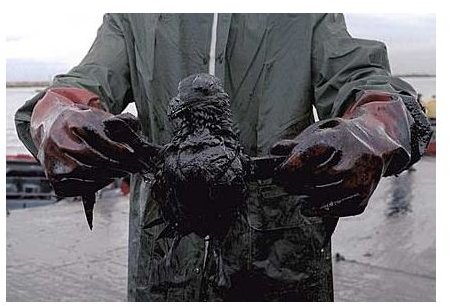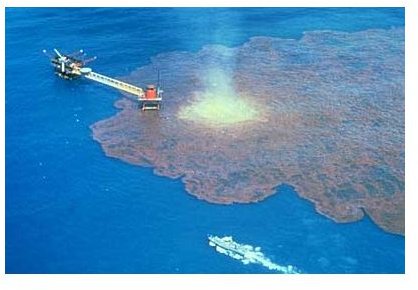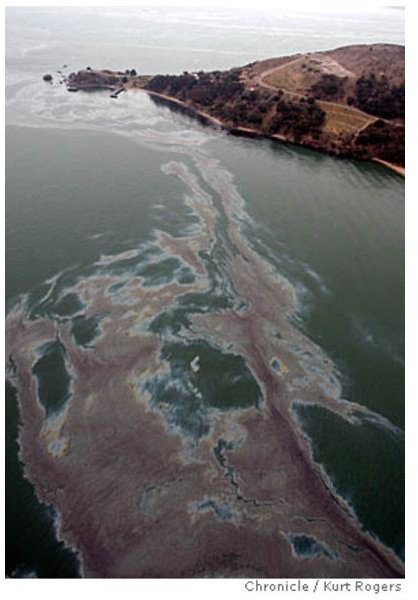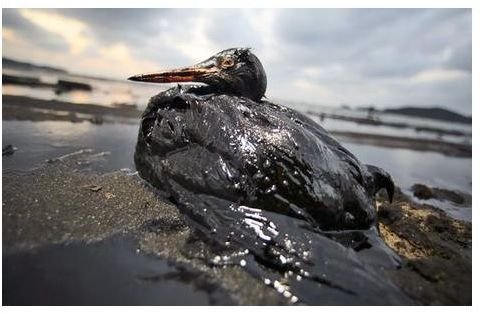Why Do Oil Spills Occur?
Introduction
An emergency is an unwelcome situation that does not give any prior or advance notice of its arrival. On board a ship, it is a totally different situation, wherein the overall safety of the ship is in danger. An emergency situation on board can be a result of quite a few instances such as man overboard, oil spillage, operational flaws, collision, grounding or stranding, foundering, fire etc.
Ashore, help can be easily available from sources such as port authorities, coast guards, hospitals, fire brigade etc. But on the ship, the responsibilities lie solely on the ship’s officer and crew. For this reason the ship’s crew should be trained with a mind-set that is prepared to face such kind of emergencies. Each and every person on the ship is allotted a specific duty, which he has to perform in case of such emergencies.
However, the most dangerous among these emergencies is oil spillage or oil leakage. An oil spill on the ship doesn’t involve that much risk if it’s under control, but once the oil finds a way into the sea water, it becomes a grave and global issue. Let’s have a look at the various aspects involved in an oil spill and its consequences thereafter, from both environmental and legal perspective. Also find out as to why do oil spills occurs?
Oil spills
In the last few decades, there has been an acclivity in the amount of oil transported by the water ways. This increase of activities has also lead to a number of occasional oil spurts across the sea. Operational or accidental release of oil and other toxic forms has lead to devastating pollution at sea. This oil pollution has caused detrimental effects on marine environment and marine life, making oil spills a matter of international concern.
Till 1970 there was no law scrutinizing the pollution made by ships. But the sudden spates of accidents during 1976-1977 lead to an establishment of a law for the prevention of pollution from ships. The law was called “MARPOL.” There are several reasons as a result of which oil enters the sea from ships and operational faults or ship accidents are supposed to be known as the main reason.
Operational causes
Oil spills on ships can be a result of both emergency and routine operations. Operations such as cleaning of cargo residues or ballasting of cargo tanks for the purpose of loading cargo and stability can lead to oil pollution. Average cargo tanks’ residue is about 0.4 percent of the cargo carrying capacity and there are chances of losing almost half of it during ballasting or cleaning operations. Other causes of oil entering the sea can be operational defects during the time of bunkering of fuel or lube oil, malfunctioning of machinery or system etc.
Pollution due to accidental causes
There is a small difference between pollution by operational causes and pollution caused due to accidents. Pollution caused due to accidents can be the result of collision of a ship either with other ship, with jetty or with any other natural entity (such as ice bergs). Although pollution by accident contributes a very small percentage of the total oil entering into the sea, the consequences to the immediate surroundings can be a disaster. The release of oil due to operational causes disperses over large area but a sudden discharge of oil due to an accident is limited to a particular area. This causes enormous adverse effect on marine life and the nearest coastline.
Effects on marine environment
We know that oil in sea is a bad thing and the impending results can affect not only marine life but also human beings in the long run. A sudden spillage of oil into the sea causes a thick layer that floats on the surface of the sea(as we know density of oil is lesser than density of water). This layer forms a smothering blanket that interferes with the exchange of oxygen between the sea and the atmosphere. This can affect all the marine life that frequently comes to the surface for oxygen or those that burgeons on the surface. If the constituents of the oil are heavier, then they might sink to the sea floor, blanketing it and thus hindering the marine life over there.
There are chances that marine inhabitants be affected by the constituents of oils (many of them are toxic) and later when consumed by humans, these constituents enters the food chain causing severe harm to human life.
Human life can also be affected when coastline or beaches which are nearest to the oil spillage and which are used for recreational activities comes in direct contact with oil. This oil may also enter sea water distilling inlets and also get deposited on tidal mud flats. When human life comes in contact with contaminated mud or toxic sea water it may lead to detrimental results.
Marine life such as turtles or sea birds might come in direct contact with the oil when they come to shore, resulting in helpless casualties. There can be long term effects also. We know that oil doesn’t go away from the water so soon. This means that if the spilled oil gets accumulated and stays there for a long time, then the organisms that are exposed to this ambient water will take up these constituents inside them, increasing the concentration of a particular substance in their body. This will result in poisoning and impairment to the organism due to accumulation of one particular substance. This is known as bioaccumulation.
Keeping all these adverse consequences in mind, maritime laws and regulations such as MARPOL were brought into action. All the amendments pertaining to pollution by oil in sea waters are enumerated in ANNEXTURE I.



References
Images :
